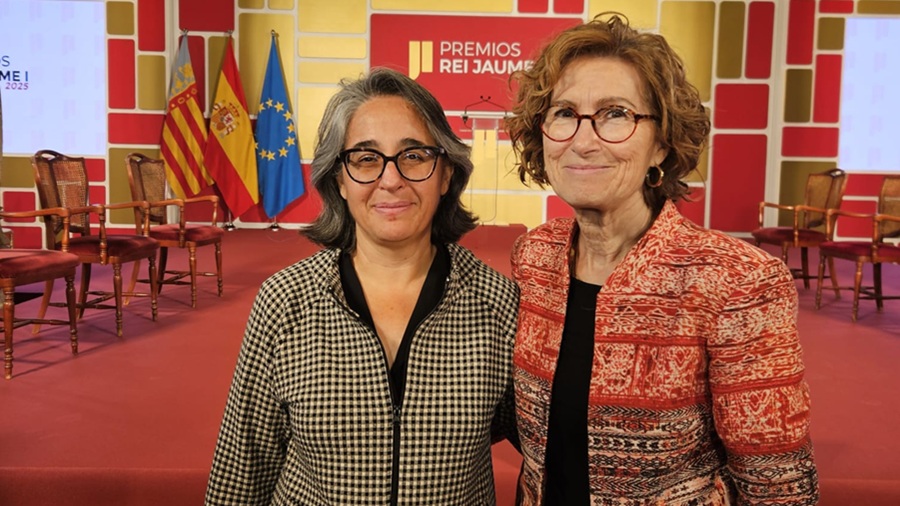Researcher Victoria Reyes García receives the Rei Jaume I Award in Environmental Protection
Victoria Reyes García, ICREA professor at ICTA-UAB, has received the Rei Jaume I Award in the Environmental Protection category from King Felipe VI in a ceremony in which the seven awardees have expressed their willingness to work to transform reality through knowledge and to open paths where others only see limits.

"It is a recognition of the idea that environmental sciences and the care of nature are not the exclusive domain of biologists and environmental scientists, but belong to society as a whole, and that there are contributions not only from the Western perspective but from other cultures”, Reyes García said.
The award recognises Reyes García’s “innovative transdisciplinary research” on the relationships between humans and the environment, “emphasising the importance of Indigenous and local knowledge systems in both climate action and conservation.”
The Jaume I Prize jury—unique in Europe for including 20 Nobel laureates among its 100 members—acknowledged that Reyes García brings truly unique perspectives to the shared agenda for transforming how humans understand and act to protect the environment. Throughout her career, she has brought together scientific knowledge with the ancestral knowledge of Indigenous communities, and her findings remind us that caring for the planet also means listening to those who have lived in balance with it for generations.
Victoria Reyes García (PhD in Anthropology, University of Florida, 2001) is an ICREA Research Professor at the Institute for Environmental Science and Technology, Universitat Autònoma de Barcelona (ICTA-UAB) since 2006. Her research centres on Indigenous and local knowledge systems and their contributions to addressing contemporary environmental challenges, including biodiversity loss and climate change. From 1999 to 2004, she lived among the Tsimane’ in the Bolivian Amazon and has since conducted extensive fieldwork across Spain, India, Mexico, Cameroon, Indonesia, and Senegal.
This year, 34 researchers competed in the Environmental Protection category, 12 of whom were women (35%). The prize honours individuals whose research significantly contributes to environmental improvement, with special emphasis on studying the causes and consequences of climate change and exploring potential solutions.
Victoria Reyes expressed that she was “very happy and, as always, a bit surprised. I’m aware that there’s an element of luck in these recognitions. The Spanish scientific system is full of talent, and the selection is never easy”. She noted that “granting this Environmental Protection Award to an anthropologist represents, for me, an important institutional recognition that the challenges of climate change and biodiversity loss cannot be addressed through technology alone”. "It is a recognition of the idea that environmental sciences and the care of nature are not the exclusive domain of biologists and environmental scientists, but belong to society as a whole, and that there are contributions not only from the Western perspective but from other cultures” she added.
Along with Victoria Reyes-García, the award was presented to José Luis Mascareñas Cid, winner in the Basic Research category; Jan Eeckhout, in Economics; Nuria López-Bigas, in Biomedical Research; María Jesús Vicent Docón, in New Technologies; Damià Tormo Carulla, in Entrepreneurial Revelation; and Silvia de Sanjosé Llongueras, in Clinical Research and Public Health.